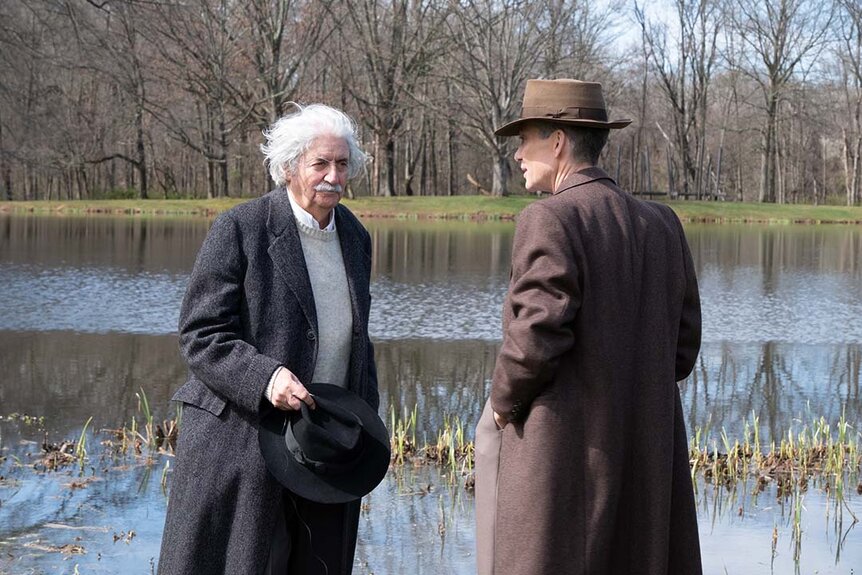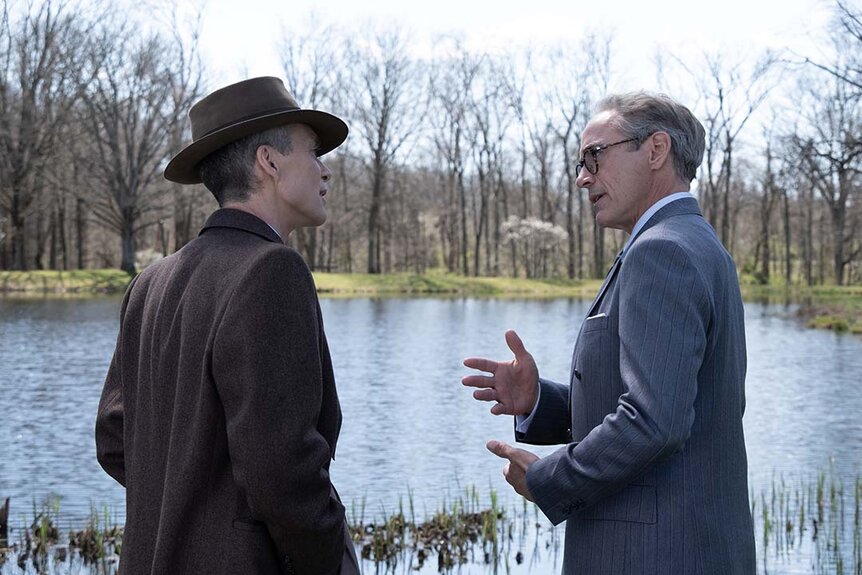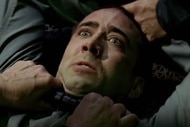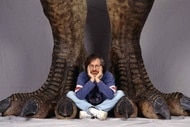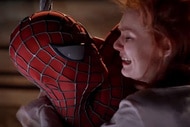Create a free profile to get unlimited access to exclusive videos, sweepstakes, and more!
The Ending of Christopher Nolan's Oppenheimer Explained
Let's break down where Nolan's latest film leaves J. Robert Oppenheimer's story.
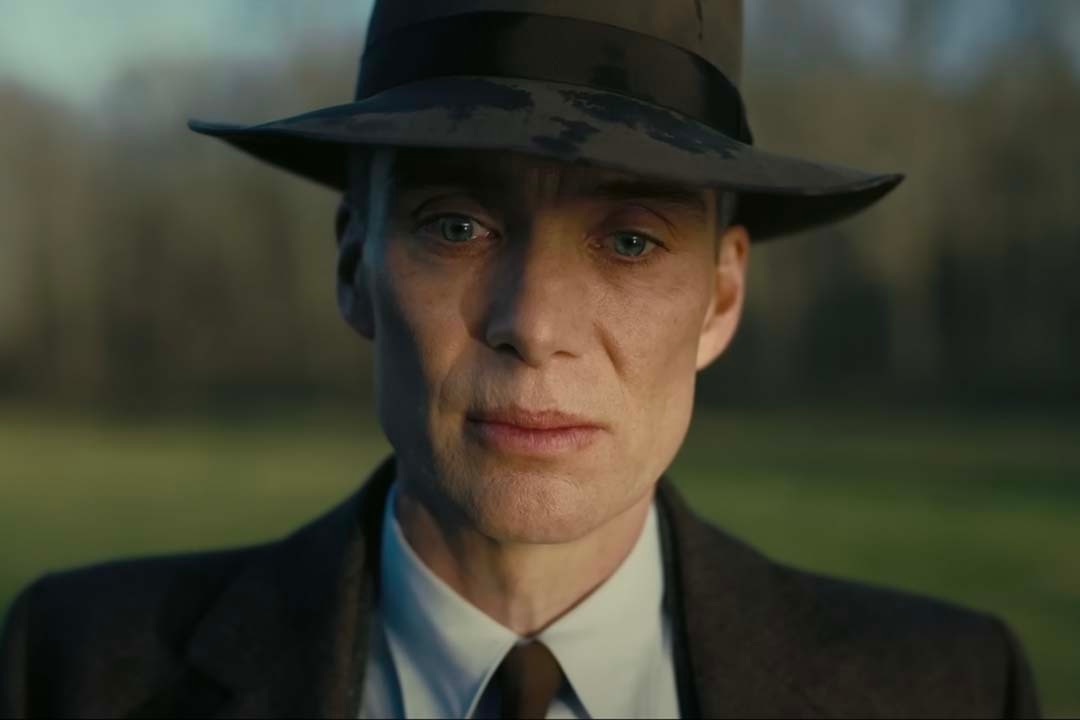
Christopher Nolan's Oppenheimer has spent much of its promotional campaign focusing on the film's depiction of the first atomic bomb tests in the deserts of New Mexico in 1945. The original Trinity test that summer, and J. Robert Oppenheimer's role in it as scientific director of The Manhattan Project, are of course crucial to the film's story, but as the title implies, Oppenheimer is also about much more. The film covers vast swaths of the physicist's life, from his days as a student to what he did, and what was done to him, in the years following World War II.
So, with that much ground to cover, and a three-hour runtime to convey an epic scope, where does Oppenheimer leave things? Let's break it down, and talk about what the ending of Nolan's film means in the larger context of Oppenheimer's story.
What happens at the end of Christopher Nolan's Oppenheimer?
As we've already discussed, the Trinity nuclear test that's been teased over and over in the trailers for Oppenheimer is indeed a pivotal moment in the film, as Oppenheimer (Cillian Murphy) and his colleagues all realize the world has irrevocably changed due to their accomplishment. But it's not the only pivotal moment in the movie, as Nolan gradually reveals through the nonlinear layout of the story that eventually culminates in Oppenheimer losing his security clearance, and therefore his authority of the world's most famous atomic energy expert.
RELATED: The Science Behind Oppenheimer's A-Bomb, Explained
The film's last scene reveals that the other major pivot point in the entire story is a seemingly small encounter on the banks of a pond in Princeton, New Jersey, where Oppenheimer stops to say hello to his friend and colleague Albert Einstein (Tom Conti). It's 1947, and Oppenheimer is there because Lewis Strauss (Robert Downey Jr.) has offered him the chance to head the Institute for Advanced Study, where Einstein is the most famous resident. The two scientists share a few words, after which Einstein turns to leave the pond. Strauss attempts to say hello to Einstein, but the legendary thinker only gives him a glare as he walks away.
As we eventually learn, this slight from Einstein poisons Strauss not just against Einstein, but against Oppenheimer, as Strauss is convinced the father of the atomic bomb must have said something to sour his colleague on him. That moment, coupled with Oppenheimer's inadvertent humiliation of Strauss at a nuclear hearing, is enough to launch a vendetta that extends into 1954, when Oppenheimer's security clearance as a member of the Atomic Energy Commission's General Advisory Council is revoked. Through a series of sequences focused on the hearings, and on Strauss's subsequent Senate hearings as he's vetted for a post in Eisenhower's cabinet, we learn that Strauss secretly and deliberately engineered the hearings to strip Oppenheimer of his credentials, removing one of the country's leading nuclear authorities and a powerful voice for disarmament and nuclear transparency. It's a dark, cynical quest for revenge, and it all began that day beside the pond.
In the film's final moments, Nolan revisits the pond scene, after once again reminding us of Strauss' perceived slight, only to reveal that the two scientists didn't discuss Strauss at all. What Oppenheimer and Einstein actually spoke about was a meeting years earlier, when Oppenheimer asked Einstein to look at a series of calculations that suggested any successful nuclear explosion might start a neverending chain reaction, setting fire to the atmosphere and ending life on Earth. Those calculations turned out to be wrong, but in 1947 Oppenheimer is a changed man. He feels he has "blood on his hands" for his role in the bombings of Hiroshima and Nagasaki, and that without proper oversight nuclear war could wipe out humanity. At the pond in 1947, he reminds Einstein of their previous meeting, then worries aloud that he "already did" start the neverending chain reaction that will end the world. It's this dark thought that sends Einstein skulking away, ignoring Strauss.
RELATED: Could Oppenheimer’s Atomic Bomb Really Have Destroyed the World?
What this means in terms of the moment in 1947 itself is quite clear. Strauss is far too ego-driven to imagine the moment is about anything other than himself, while Einstein is haunted by Oppenheimer's fall from ambitious physicist to guilty collaborator. As for Oppenheimer himself, he fears annihilation; now that the bombs have been used, other countries are no doubt working to develop them, and the U.S. seems poised to escalate any eventual arms race. As Kai Bird and Martin J. Sherwin's book American Prometheus laid out, Oppenheimer would spend much of the rest of his life trying to discourage such an arms race, following the lead of his friend and mentor Niels Bohr in calling for absolute candor and transparency in terms of nuclear energy, and even calling for an international governing body for the bombs and any other atomic projects. He was committed to preventing and defusing any and all nuclear arms races, and he never lost the sense of being haunted by his own role in starting them in the first place.
Of course, as the film shows us in the moments leading up to that final scene, Oppenheimer basically failed in that mission. At every turn, through men like Strauss and his fellow scientist Edward Teller (Benny Safdie), the United States government pushed for greater nuclear power and more secrecy, the opposite of what Oppenheimer hoped would come from his research and advocacy. The "chain reaction" he feared in 1947 really was barreling forward, out of his control, giving way to decades of Cold War and nations on the brink of using atomic weapons again and again.
When it's all presented in the way Nolan's chosen to cut it together, the ending of Oppenheimer lays out all of this in chilling, unforgettable detail, and reminds us that many of Oppenheimer's fears from 1947 are with us even now.
Oppenheimer arrives in theaters tomorrow, July 21. Click here to pick up tickets.
Want more blockbuster thrills in the meantime? Jaws, Jurassic Park, The Da Vinci Code, The Hunger Games, Fast Five, Jurassic World, Knock at the Cabin, Cocaine Bear, Renfield, and more are now streaming on Peacock!
